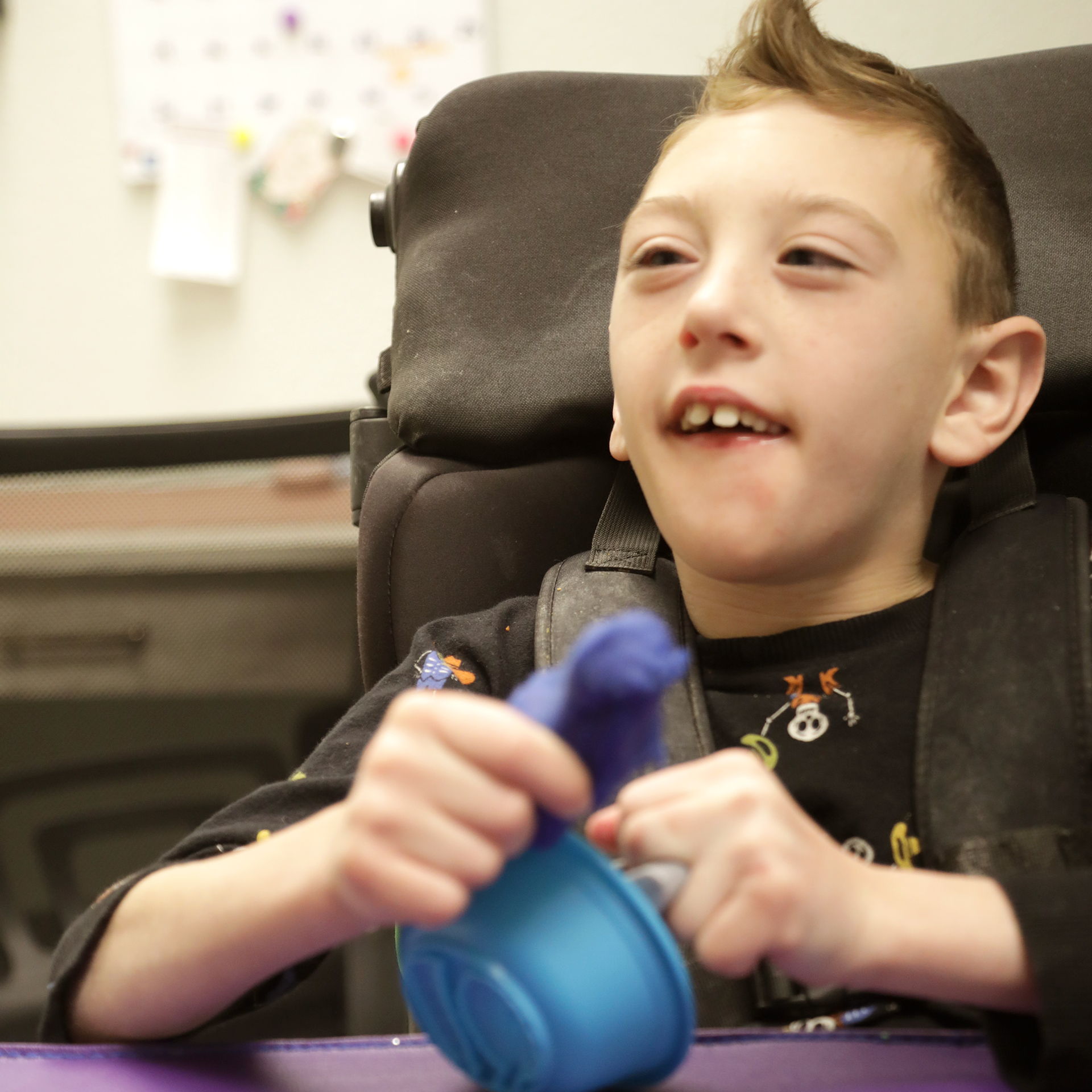Best Dogs For Autism


Understanding the Role of Dogs in Autism Support
Dogs have long been recognized as powerful allies in supporting individuals with autism. Their loyalty, intelligence, and ability to provide comfort make them ideal companions and support animals. This article explores the characteristics of suitable breeds, the benefits they offer, and how to select the best dog to meet specific needs, ensuring a safe and enriching partnership.
The Multifaceted Benefits of Support Dogs for Autism

How do support dogs benefit individuals with autism?
Support dogs play a vital role in enhancing the lives of people with autism by offering numerous emotional and practical advantages. These specially trained animals provide unconditional love and companionship, fostering a sense of security and reducing feelings of loneliness.
One of the most significant benefits is their capacity to help regulate emotions. Support dogs can recognize signs of anxiety or agitation and respond with calming actions such as deep pressure therapy—leaning or cuddling—that help soothe the individual. This is especially useful during stressful situations like medical or dental visits, shopping, or travel.
Support dogs also promote social interaction by acting as social catalysts, helping individuals with autism to engage more comfortably with others. They naturally draw attention and initiate conversations, easing social anxieties and creating opportunities for positive interactions.
Safety is another critical aspect. These animals are trained to prevent wandering, a common concern for children with autism, and can gently interrupt self-harming behaviors or emotional meltdowns, thereby protecting the individual and improving overall safety.
Furthermore, dogs help foster independence in daily routines. They can assist with tasks such as fetching medication, alerting others if help is needed, or providing grounding during sensory overloads. Their presence encourages and supports greater participation in community activities, school, and healthcare settings.
Choosing the right type of support animal depends on individual needs. Service dogs, like Labrador Retrievers or Golden Retrievers, are often trained to perform specific tasks, including alerting to emotional changes or providing physical support. Therapy dogs, often breeds like Poodles or Bernese Mountain Dogs, are well-suited to therapeutic environments, offering comfort and stress relief.
Overall, dogs offer invaluable support that can significantly improve the quality of life for individuals with autism. They help reduce anxiety, foster emotional and social skills, and provide safety and independence, making everyday experiences more manageable and enjoyable.
Types of Support Animals and Their Specific Roles
Support animals offer vital assistance for individuals with autism, each playing a unique role adapted to the person's needs.
Service Dogs and Their Tasks
Service dogs are extensively trained to perform specific tasks that help increase safety and independence. They can detect and respond to signs of anxiety, interrupt self-harming behaviors, and even assist with physical safety by preventing wandering. These dogs are often trained to read emotions, alert others when help is needed, and apply calming pressure through physical contact. Popular breeds such as Labrador Retrievers, Golden Retrievers, Poodles, and Labra-doodles are known for their calmness, high intelligence, and trainability, making them suitable service dog candidates.
Therapy Dogs in Clinical and Social Settings
Therapy dogs provide comfort and promote social interaction in various environments, including hospitals, clinics, and schools. They are trained to be calm, patient, and responsive to sensory cues, acting as social catalysts that help children with autism engage more comfortably. Their presence can reduce stress and improve mood, encouraging behaviors like eye contact and social participation.
Emotional Support Animals and Their Benefits
Emotionally supportive animals, often in the form of companion dogs, provide unconditional love and emotional stability. They ease anxiety, improve mood, and foster social engagement. Unlike service dogs, they do not perform specific tasks but are valued for their therapeutic presence, offering comfort simply through companionship.
Legal Rights and Training Standards for Service Dogs
According to the Americans with Disabilities Act (ADA), individuals with disabilities have the legal right to train their own service animals without requiring professional certification. These animals must be trained to perform tasks related to the person’s specific needs. Certified service dogs wear identifiable harnesses or capes and are allowed access in public spaces, ensuring their owners can benefit from their assistance.
Versatility of Support Animals in Different Environments
Support animals are adaptable, assisting children and adults in various settings such as homes, schools, hospitals, and public areas. They can help regulate sensory input, provide grounding during emotional meltdowns, and serve as social bridges that facilitate communication and connection.
Through tailored training and careful breed selection, support animals play an essential role in empowering individuals with autism, aiding them in safety, emotional regulation, and social interaction.
| Type of Animal | Main Role | Typical Tasks | Common Breeds | Suitable For |
|---|---|---|---|---|
| Service Dogs | Assistance & Safety | Alerting anxiety, preventing wandering, de-escalating meltdowns | Labrador Retriever, Golden Retriever, Poodle, Doodle | Children & adults needing task-specific help |
| Therapy Dogs | Emotional Comfort | Promoting social interactions, reducing stress | Cavalier King Charles Spaniel, Labrador, Golden Retriever | School, therapy sessions, hospitals |
| Emotional Support Animals | Emotional Stability | Providing comfort, reducing anxiety | Various breeds including small and calm dogs | Home, travel, daily emotional support |
Dogs are especially valued for their loyalty, intelligence, and responsiveness, making them excellent companions and helpers for individuals with autism.
Ideal Characteristics of Support Dogs for Autism
Support dogs for autism are chosen based on their ability to provide comfort and assistance tailored to individual needs. Their temperament is a fundamental factor, with calm and patient breeds being most suitable. Dogs that maintain a gentle demeanor help create a sense of safety and trust for those with autism.
High intelligence and ease of training are crucial traits, allowing these dogs to learn specific tasks such as alerting to anxiety, interrupting self-harming behaviors, and providing calming pressure during distress. Breeds like Golden Retrievers, Labradors, and Labradoodles stand out because of their friendly, loyal, and adaptable nature. These breeds often excel in various support roles, owing to their trainability and social temperament.
Sensitivity to sensory cues enables support dogs to recognize signs of emotional or behavioral changes quickly. For instance, they can detect agitation or stress through subtle cues and respond with appropriate comforting actions. These qualities are especially important in managing situations like medical visits, school activities, or public outings.
Protection and loyalty are additional qualities that make some breeds, such as Bernese Mountain Dogs and German Shepherds, well-suited for roles that require safety and reassurance. These dogs can guard their owners while remaining trustworthy and gentle.
Furthermore, the ability to respond to individual needs is essential. Each autistic person has unique challenges, so support dogs must be trained to perform tasks that cater specifically to their owner’s circumstances, whether that involves deep pressure therapy, guiding, or alerting others.
Overall, the most effective support dogs are those capable of forming strong bonds, maintaining composure in diverse environments, and being attentive and responsive to their owner’s sensory and emotional cues.
Factors to Consider When Selecting a Support Dog
How can someone select an appropriate dog for an autistic child?
Choosing the right support dog for a child with autism involves careful consideration of multiple factors to ensure compatibility and effectiveness.
First, it is important to assess the child's specific needs and sensitivities, such as their temperament, sensory preferences, and behavioral patterns. Some children may benefit from calming, gentle dogs that can provide comfort through physical contact, while others might require alertness to signs of distress or self-harming behaviors.
Dog traits like calmness, patience, high intelligence, and adaptability make breeds like Labrador Retrievers, Golden Retrievers, Poodles, and Saint Bernards popular choices. These breeds are known for their stable temperaments and trainability, making them suitable for various support roles.
Size, energy level, and grooming needs should also be considered. Smaller dogs like Cavalier King Charles Spaniels may be a good fit for children sensitive to large animals, while active children may thrive with energetic breeds that can engage in dynamic activities.
Breeds' suitability depends heavily on temperament. A calm and gentle nature is preferred for emotional support and therapy, whereas protective breeds like Bernese Mountain Dogs or Labradoodles can offer safety and reassurance.
The role of specialized training cannot be overstated. Support, service, and therapy dogs often undergo extensive training, sometimes receiving formal certification, to perform tasks such as calming during meltdowns, preventing wandering, or alerting family members to signs of anxiety.
Finally, consideration of family lifestyle and the child's comfort is crucial. The environment, daily routines, and the child's familiarity with animals will influence the success of the dog’s integration. Consulting with experienced organizations can facilitate matching the right dog to the child's unique needs.
Selecting a support dog is a personalized process that combines understanding the child's specific requirements with the dog's qualities, ensuring a beneficial and harmonious relationship for the entire family.
Legal and Ethical Considerations in Support Dog Training and Ownership

What criteria should be considered when choosing a therapy or support dog for a person with autism?
Selecting the right dog to support a person with autism is a thoughtful process that balances the dog's temperament, size, grooming requirements, and energy levels. Compatibility with the individual's daily routines and environment plays a crucial role.
Breeds such as golden retrievers, labradors, and labradoodles are often recommended because they tend to be calm, intelligent, and easy to train. These qualities make them suitable for tasks like providing calming pressure, interrupting self-harming behaviors, and serving as social catalysts.
The specific needs of the person are essential considerations. For example, if deep pressure therapy or sensory regulation is required, the chosen dog should be trained to perform and respond to those demands. Consulting with licensed assistance dog agencies can help identify suitable candidates based on individual needs.
Age, excitement level, and comfort around new animals also influence the decision. Additionally, the caregiver’s ability to commit to ongoing training, supervision, and care impacts the dog's effectiveness and well-being.
Beyond breed and temperament, practical aspects such as safety, the dog's health, and availability of post-placement support are vital. Ensuring the dog has proper certification or training in accordance with established standards can guarantee it meets safety and functionality requirements.
Overall, thorough assessment and a personalized approach help ensure the chosen dog provides maximum benefit for the child's development and comfort, while also respecting ethical standards and legal rights.
Supporting Autism Through Breed Selection with Allergies in Mind
What breeds are recommended for supporting autistic individuals, especially those with allergies?
When choosing a support dog for an autistic person, especially someone with allergies, it’s important to select breeds that are less likely to trigger allergic reactions. Hypoallergenic breeds such as Poodles and Labradoodles stand out as excellent options. These breeds typically have coats that shed minimally, reducing airborne allergens and making them allergy-friendly.
Labradoodles are known for their high intelligence and gentle nature, making them suitable as both therapy and emotional support dogs. Poodles, whether standard, miniature, or toy, are equally intelligent, highly trainable, and affectionate, with a reputation for being allergy-friendly due to their curly coats.
Larger, calmer breeds such as Golden Retrievers and Labrador Retrievers are also popular for autism support because of their loyal and calm disposition. However, they tend to shed more, which might be a consideration for allergy sufferers.
Smaller breeds like Cavalier King Charles Spaniels, French Bulldogs, and Pugs can offer comforting companionship and are often suitable for children who prefer smaller pets. They tend to be affectionate and calming, making them good support animals.
Matching the right breed to a child's specific needs involves assessing various factors—size, energy level, grooming requirements, and temperament. Consulting with professionals can help families find the best fit, ensuring that the support dog provides comfort and assistance while also accommodating allergy considerations.
Support for Adults with Autism and the Role of Dogs
 For adults with autism, the right dog can become an invaluable source of emotional stability, companionship, and practical assistance. Certain breeds are widely recognized for their suitability to serve as support animals, thanks to their calm temperament, intelligence, and trainability.
For adults with autism, the right dog can become an invaluable source of emotional stability, companionship, and practical assistance. Certain breeds are widely recognized for their suitability to serve as support animals, thanks to their calm temperament, intelligence, and trainability.
Among the most popular breeds for supporting adults are Golden Retrievers, Labradoodles, and Labrador Retrievers. These breeds are known for their easygoing nature and ability to be trained for specific tasks that can ease daily challenges. Other commendable breeds include Poodles, which are hypoallergenic and highly intelligent; Newfoundlands, famous for their gentle and protective nature; Bernese Mountain Dogs and Saint Bernards, which are calm and loyal; and German Shepherds, valued for their strength, intelligence, and versatility.
Support tasks performed by these dogs range from alerting to signs of anxiety or agitation, providing calming pressure during stressful situations, helping prevent wandering, and even interrupting self-harming behaviors. These animals can also offer emotional comfort during medical visits, social outings, or simple daily routines, making life more manageable.
Training and breed suitability often go hand in hand; however, it is critical to remember that individual temperament and compatibility are vital. Many support dogs are trained specifically to meet a person’s unique needs, following guidelines that encompass tasks such as fetching medication, providing deep pressure therapy, or acting as a social catalyst.
While breed traits provide a helpful starting point, selecting the right support dog requires considering the individual’s lifestyle, sensory sensitivities, and specific challenges. Proper training is key, regardless of breed, to ensure the dog effectively supports an adult with autism. Whether as a service dog, therapy companion, or emotional support animal, the primary goal is to foster independence, comfort, and improved quality of life.
Table of Supported Dog Breeds for Adults with Autism
| Breed | Characteristics | Support Capabilities | Additional Notes |
|---|---|---|---|
| Golden Retriever | Calm, intelligent, friendly | Alerting, calming, social facilitation | Highly trainable, popular for service |
| Labrador Retriever | Adaptable, intelligent, cheerful | Anxiety alert, self-harm interruption, assistance | Widely used as service dogs |
| Labradoodle | Hypoallergenic, highly trainable | Assistance, emotional support | Suitable for allergy sufferers |
| Poodle | Intelligent, hypoallergenic, adaptable | Diverse tasks, alerting, calming | Good for clients with allergies |
| Newfoundland | Gentle, protective, calm | Emotional support, companionship | Larger breed, suited for physical support |
| Bernese Mountain Dog | Loyal, calm, patient | Support, comfort | Excellent for family support |
| German Shepherd | Intelligent, protective, adaptable | Assistance, security | Good for diverse support needs |
Choosing the appropriate dog entails evaluating personal needs, lifestyle, and the dog's temperament. The right match can provide stability, reduce anxiety, and enhance social engagement, significantly improving the quality of life for adults with autism.
Training, Certification, and Post-Placement Support for Support Dogs

What do autism service dogs do?
Autism service dogs are specially trained animals that support individuals with autism in various ways to improve safety, promote independence, and reduce anxiety. They are taught to perform specific tasks tailored to each person's needs, such as helping with sensory regulation through Deep Pressure Therapy, which involves firm, calming pressure via cuddling or leaning. These dogs can also alert to sounds or hazards, helping their handlers stay safe in unfamiliar or potentially dangerous situations.
A primary role of these dogs is to prevent wandering, which is a common safety concern for children with autism. Many autism service dogs are tethered to their owner at all times to ensure they do not stray, especially in crowded or unsafe environments. They can also interrupt repetitive or harmful behaviors like self-hitting or biting by gently redirecting attention or providing calming pressure.
In addition to safety and behavioral support, autism service dogs assist with social engagement by acting as social catalysts, encouraging interactions and communication. They also help with everyday tasks, including retrieving objects, guiding the individual, or alerting others if their owner needs help.
Training standards for these animals are rigorous. Dogs undergo extensive training to meet specific task requirements, including obedience, environmental awareness, and responsiveness to emotional cues. Certification processes often involve demonstrating the ability to perform these tasks reliably in various settings.
Legal rights are protected under the Americans with Disabilities Act (ADA), which states that individuals with disabilities can train their own service dogs and are entitled to access community spaces with their animals. Continuous post-placement support is crucial, as ongoing training helps maintain the dog’s skills and addresses any behavioral issues that may arise.
Handling and family responsibilities include ensuring the dog’s well-being, providing regular training reinforcement, and understanding the dog’s cues and needs. Proper support and training ensure that these animals remain effective partners in managing autism symptoms and enhancing overall quality of life.
Empowering Independence and Well-Being with Support Dogs
Choosing the right dog for an individual with autism involves careful consideration of temperament, training, and specific needs. Support dogs—be they service, therapy, or emotional support animals—offer unparalleled benefits, including emotional regulation, increased safety, and social engagement. With proper training and a strong partnership, these loyal animals can significantly enhance quality of life, fostering independence and emotional stability while providing unconditional companionship. By understanding the qualities and responsibilities involved in selecting and caring for a support dog, families can ensure a trusted and effective support system that truly makes a difference in the lives of those on the autism spectrum.
References
- Service dogs or therapy dogs for autism | Autism Speaks
- 20 Best Dog Breeds for Autism Therapy - Astra ABA
- The 14 Best Dog Breeds for Children or Adults with Autism
- Top 8 Dog Breeds for Autistic Children - Wag!
- Which Pets Are Best for Children with Autism?
- 10 Benefits of Autism Therapy Dogs
- What Do Autism Service Dogs Do?
- What are the benefits? - Autism Dogs Charity
Recent articles

What to Expect at Your First Therapy Session
Discover what your child’s first therapy session looks like, from rapport building to goal setting, and how families can feel confident starting care.

Celebrating Small Wins: How Therapy Helps Kids Build Confidence All Year Long
Learn why small wins in therapy matter, how they boost your child’s confidence, and simple ways families can celebrate progress all year long.

Empowering Missoula Children to Grow With Confidence and Connection
Learn how ABA therapy in Missoula helps children build communication, independence, and confidence through personalized, family‑centered support at Advanced Therapy Clinic.

Compassionate Pediatric Therapy in Butte, Montana
A welcoming place where every child’s potential is celebrated

How Pediatric Therapy Helps Kids Thrive across Montana and Wyoming
A supportive guide for families exploring therapy options in Billings, Butte, Missoula or Sheridan.

How to Choose the Right Pediatric Therapy Clinic in Billings, Montana
A Parent‑Friendly Guide To Finding The Best Support For Your Child

